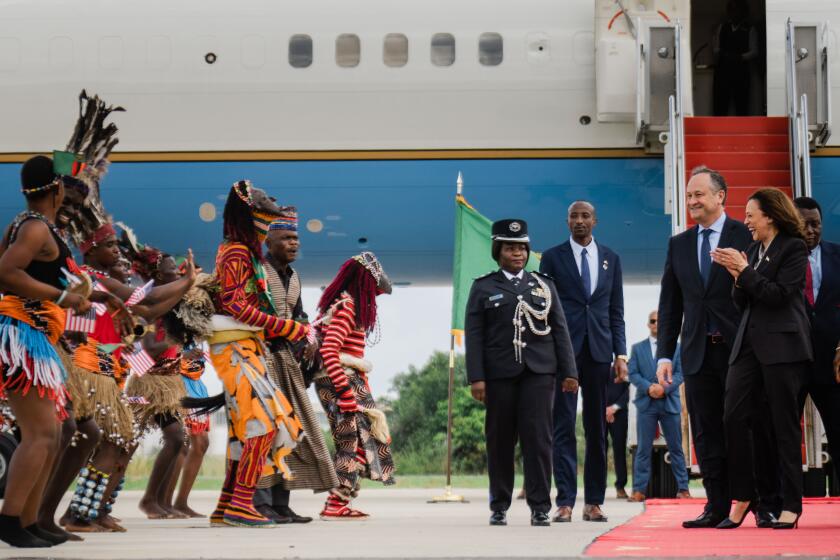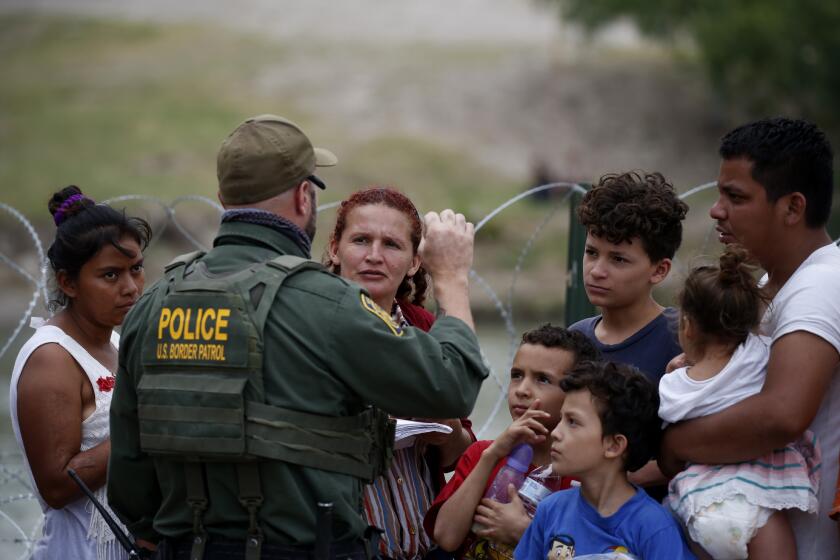
- Share via
LUSAKA, Zambia — Crowds of locals packed onto balconies and cheered as Vice President Kamala Harris’ motorcade pulled onto a manicured, palm tree-lined driveway, near where she had visited her grandfather in the late 1960s. But something wasn’t quite right.
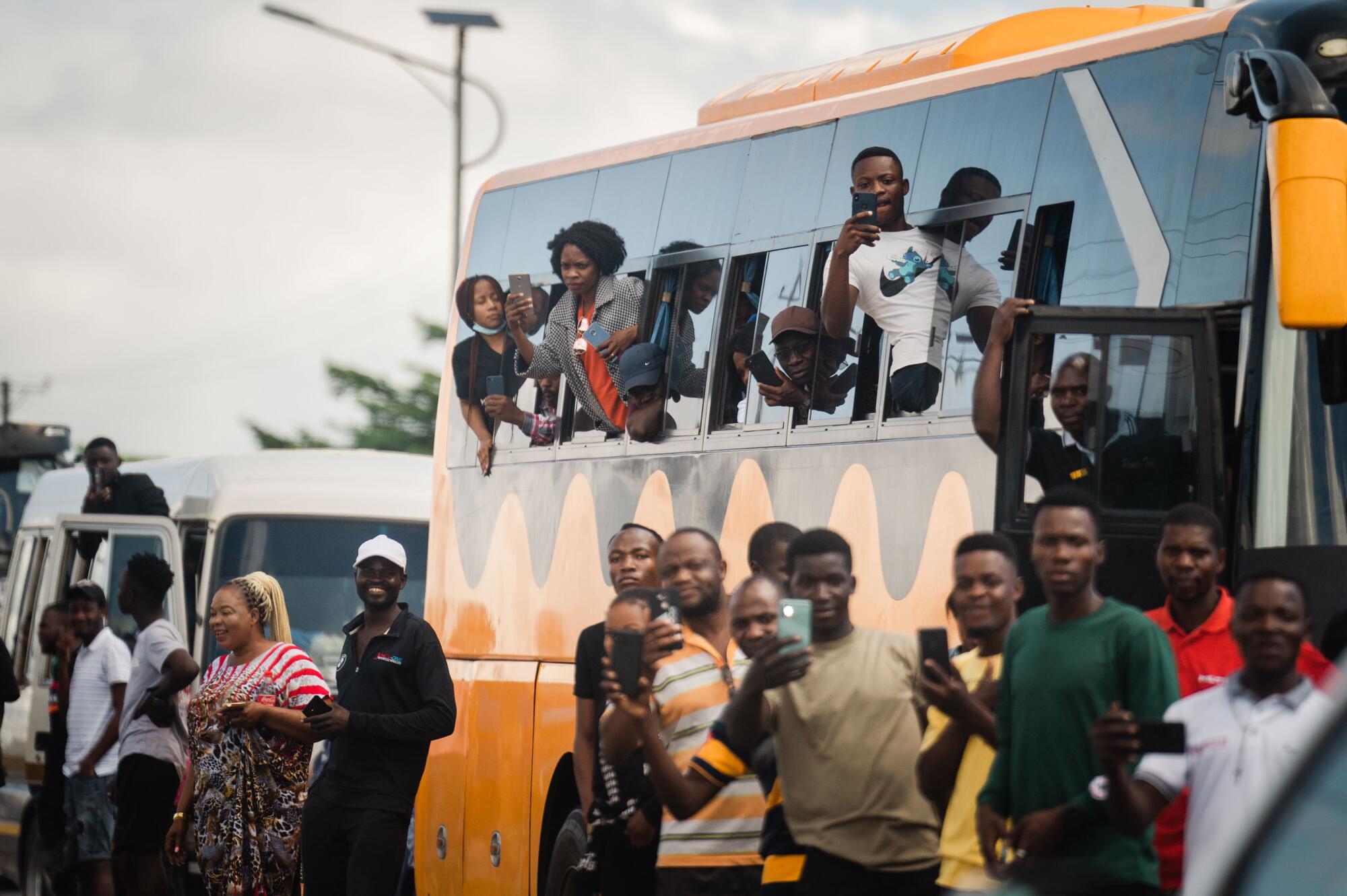
Harris was wrapping up a weeklong trip across Ghana, Tanzania and Zambia aimed at highlighting Africa’s economic potential. Like any vice president facing a near-certain reelection campaign, though, she was also focused on her political future. As the No. 2 to America’s oldest-ever chief executive, she wanted to show off her foreign policy bona fides and reassure voters that she’s prepared to lead.
Last week’s trip also offered Harris, who prefers projecting her strength and expertise to displaying the vulnerability that comes with talking about biography and family history, an opportunity to remind the public of her personal story, and to tie together its many threads. That’s the sort of mission a visit to your Indian grandfather’s house in Zambia is supposed to accomplish.
“You don’t let people tell you who you are, you tell them who you are,” she told The Times in an interview later, extending her index finger as she recalled the advice her mother once gave her. “Don’t be burdened by other people’s limited ability to see what is possible. You see what is possible, and go for it.”
With P.V. Gopalan, an upright civil servant and doting patriarch, Kamala Harris forged one of the defining relationships of her life.
The problem, at this particular moment, was that the two-story house Harris had visited as a child had been torn down and replaced with a stucco-roofed office building.
The U.S. Embassy had worked for a year to locate her grandfather’s old residence in Lusaka. Harris remembered its blue bathroom, illuminated by neon lights. She remembered playing in the red soil outside. She had phoned her aunts and prodded them for details of the house and the life her grandfather had built in Zambia’s capital city.
The home would have been a great backdrop for a press event, one that would highlight her heritage and her roots, and how they influenced her. But a few days earlier, the embassy had delivered her team the news: Although its researchers had located the plot, the house wasn’t there.
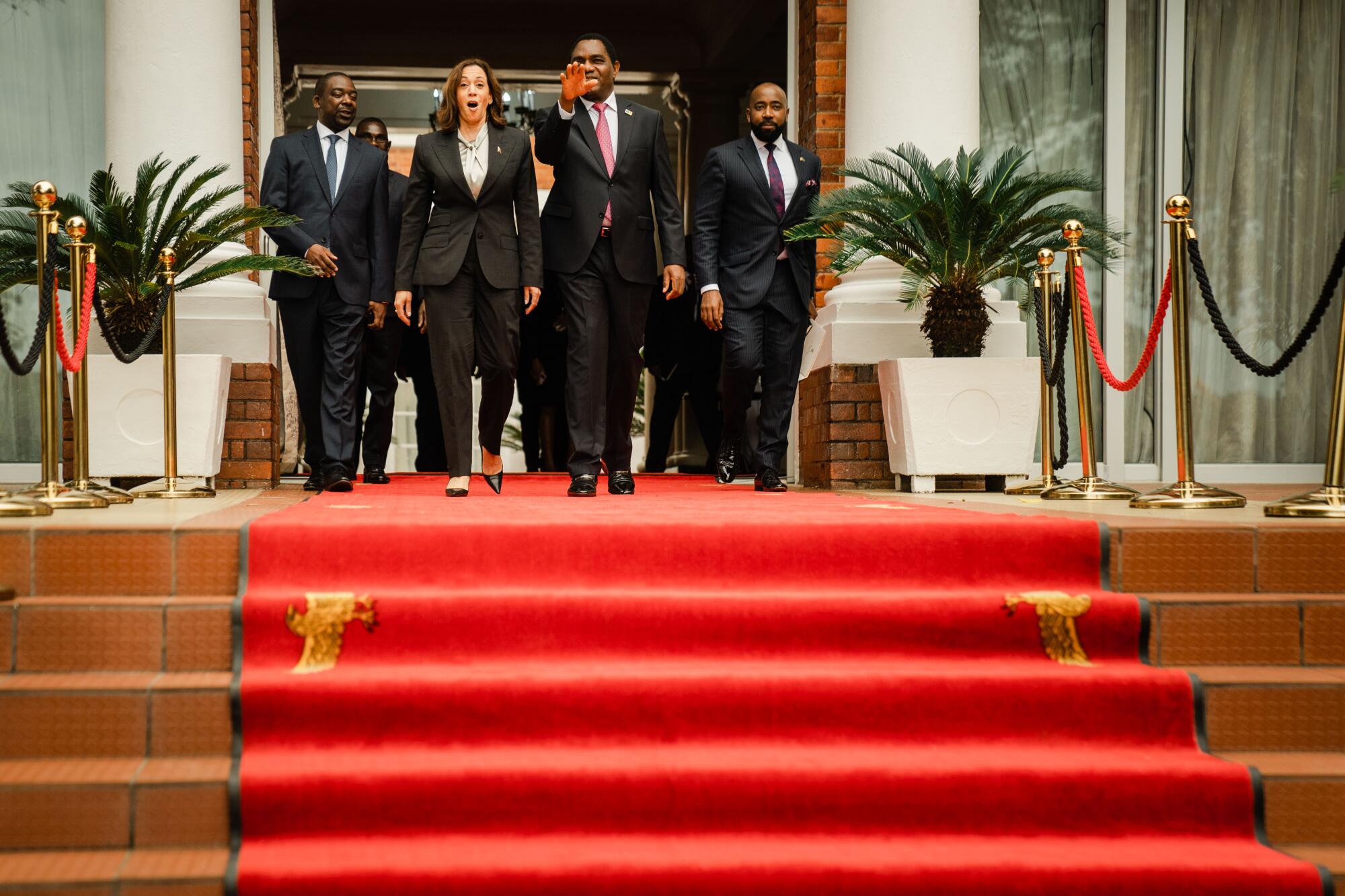
Harris was in the midst of her most serious effort yet to explore her family history in a public way, but was running into obstacles that were well beyond her control.
The vice president has always been more comfortable talking about policy than about her identity. She believes that understanding history — including personal history — requires context that can’t be jammed into a sound bite. And as a multiracial woman in the United States, a country that has traditionally viewed race through a binary lens, she has refused to define herself by the family heritage that made her election to office historic.
As vice president, she has not made an effort to travel to her mother’s home city of Chennai, in India, and has never mentioned plans of visiting Jamaica, her father’s native country.
But in Africa — a continent rich in symbolism for the first Black female vice president and one that 3 million people of Indian descent call home — she had freely spoken of her identity, not only as a product of the African diaspora, but also as a descendant of her Indian ancestors who lived there.
She had delivered a rare unscripted speech at Ghana’s Cape Coast Castle, where slaves were imprisoned and tortured before they were forced onto ships to make the transatlantic voyage to the Americas and Caribbean island nations like her father’s Jamaica. During a speech in Accra, at a monument built on the site where Ghana declared its independence from Britain, she spoke of Africa’s significance to both sides of her family.
She had also performed an exhausting amount of public diplomacy, visiting a skate park and attending a star-studded banquet in Ghana, expounding on the importance of democracy in Tanzania, and announcing new commitments of public and private funding — for security, climate resilience, female entrepreneurs — everywhere she went.
Vice President Kamala Harris’ trip to Africa was far more than just business as usual. It was a chance to connect with family ties.
Now, in Zambia, she was in a position to explore her family’s history and celebrate her Indian background.
Harris’ grandfather, P.V. Gopalan — whom she’s described as one of her greatest influences — was deployed here by the Indian government in 1966 to help a freshly independent Zambia manage a steady flow of refugees fleeing the war between African nationalists and the white-minority government in Southern Rhodesia, now Zimbabwe.
“The word refugee was in my vocabulary, probably very early in my life as compared to maybe the life’s experience of other people, because of the work he did,” Harris told The Times.
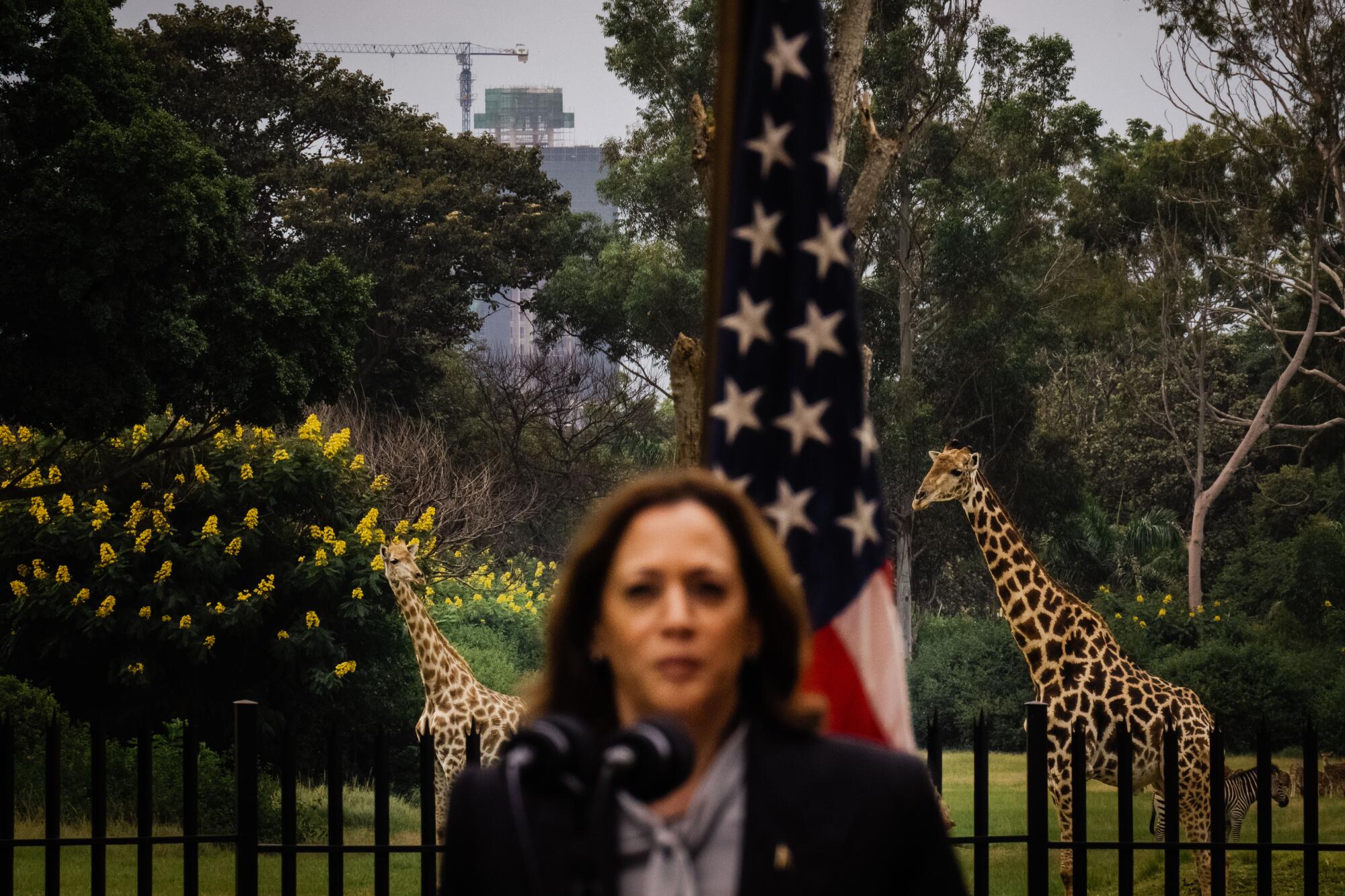
Gopalan’s work influenced her mother, too, Harris said. “There was no coincidence at all that my mother arrived in the United States at the age of 19 and immediately identified with the civil rights movement,” she said. “It was all very much a part of the same language and a certain passion.”
More than half a century later, Harris is grappling with migration issues as the Biden administration struggles to handle an influx of people fleeing economic turmoil and violence in their home countries.
Two years ago, Biden asked Harris to try to address the root causes of migration from Central America to the United States. She secured commitments of $4.2 billion in public and private investments across Guatemala, El Salvador and Honduras — where most migrants hailed from when Biden first assigned her the job in 2021.
Harris approached the assignment “probably having some reference to what I learned about this issue when I was young,” she told The Times. She believes that most people don’t want to leave home, and often only do when they can’t satisfy their basic needs.
But the strategy of focusing on helping those Central American nations failed to reduce border crossings, which increased to record levels in 2021 and 2022.
Harris aides argue that the root causes strategy worked. The number of migrants from northern Central America, specifically, has declined since 2021. That decrease in migrants from one region, though, did not satisfy Republicans, who characterized the record numbers of migrant encounters at the border as a crisis.
In recent months, the Biden administration has turned to more restrictive measures to discourage migration, using a Trump-era policy to expel certain migrants without legal process and moving to limit access to asylum.
U.S. immigration politics have shifted on their axis over the last 10 days. Now ‘we will never go back to what it was before Trump,’ one advocate warns.
Those changes had put Harris in a difficult position. The strategy she was asked to advance had been discarded, but she would own it. As vice president, she’ll own the new strategy, too.
Other vice presidents with presidential ambitions have faced similar dilemmas. Biden had to step out of the shadow of Barack Obama. Al Gore tried to distance himself from Bill Clinton, and George H.W. Bush from Ronald Reagan. As No. 2s, vice presidents have to figure out how to display their decision-making and leadership skills without ever defying or overshadowing the person in the Oval Office.
“Vice presidents always end up in this interesting category of being famous but not well known,” said Chris Lehane, a former Clinton White House official and press secretary for Gore’s 2000 presidential campaign. “You establish yourself as your own person, as your own leader, but you’re actually not really No. 1 on the ticket. So how do you do that?”
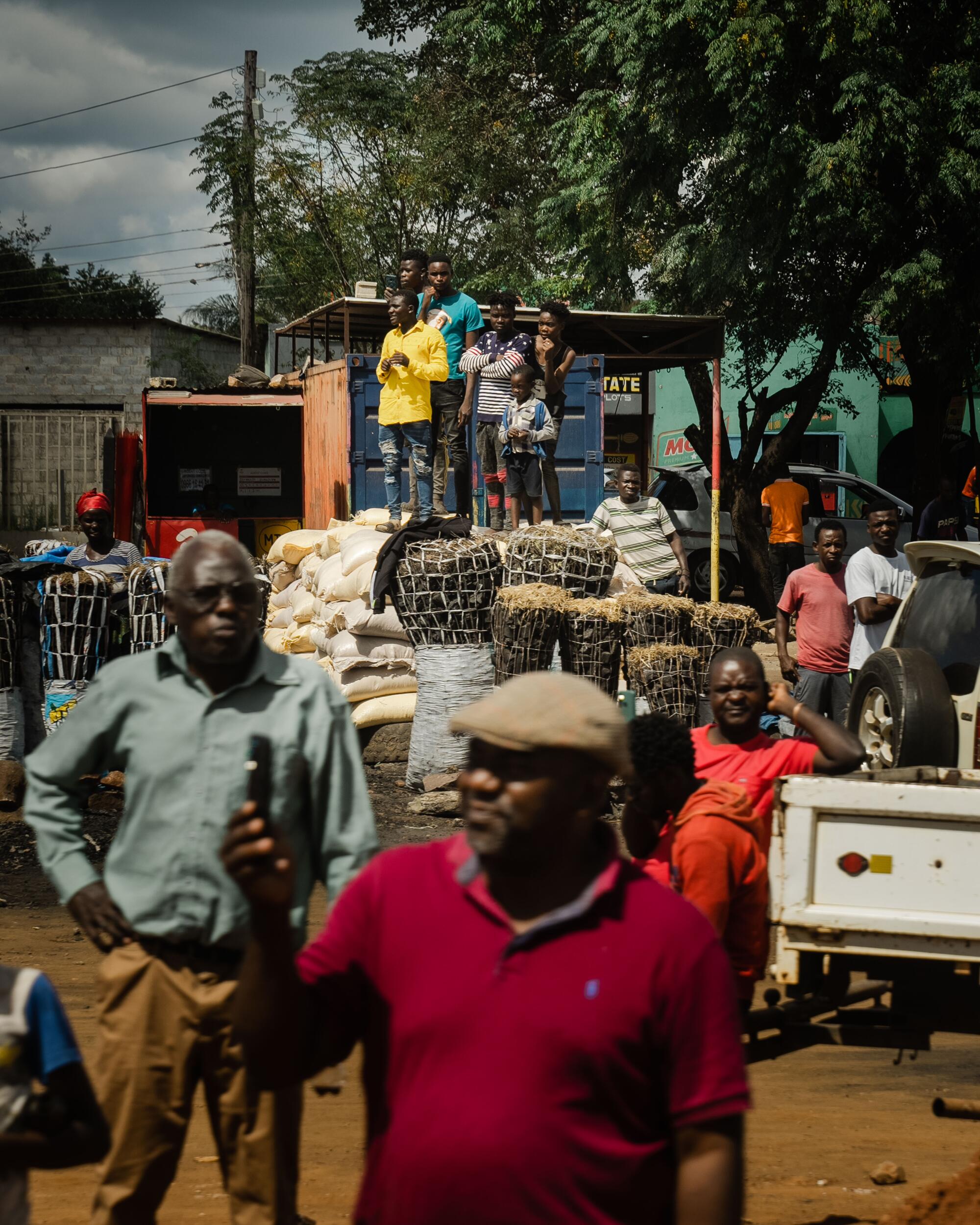
Harris faces a particularly difficult version of the vice presidential conundrum. She’s often pressed on questions about race and gender that her white, male predecessors never faced. Every vice president faces questions about whether they’re ready for the top job. But thanks to Biden’s age — 80 — she’s had to quiet those concerns earlier and more often than previous veeps.
And now here she was in Lusaka, visiting the house of her grandfather, who made his career as an expert on refugee resettlement, all while her own administration’s policies on migration were the topic of huge controversy and frenzied speculation — and the house wasn’t even there.
As she gazed up at the office building, Second Gentleman Doug Emhoff by her side, an embassy official explained the painstaking process of searching for the site, mining old public records and interviewing long-retired government workers. The official handed Harris the piece of evidence that was used to pinpoint the property: a small blue card from the Zambian Ministry of Lands bearing her grandfather’s surname.
Later, she spoke at the Zambian National Assembly, where more than 50 years earlier she had climbed onto a stone monument dedicated to Queen Mary, Queen Elizabeth’s paternal aunt, and posed for a picture.
“He believed in the nobility of public service,” she told reporters, referring to her grandfather. “... I don’t think until I was older, I realized how that just subconsciously influenced the way I think in a very strong way.”
Perhaps that’s one reason it’s so hard for Harris to talk about the origins of her values: She didn’t arrive at them entirely on her own.
“Later in life, I fully realized how it just was a part of the entire environment,” she told The Times. “Nobody necessarily sat down and said, ‘We will be for these things.’ They just were. … It was almost nonnegotiable.”
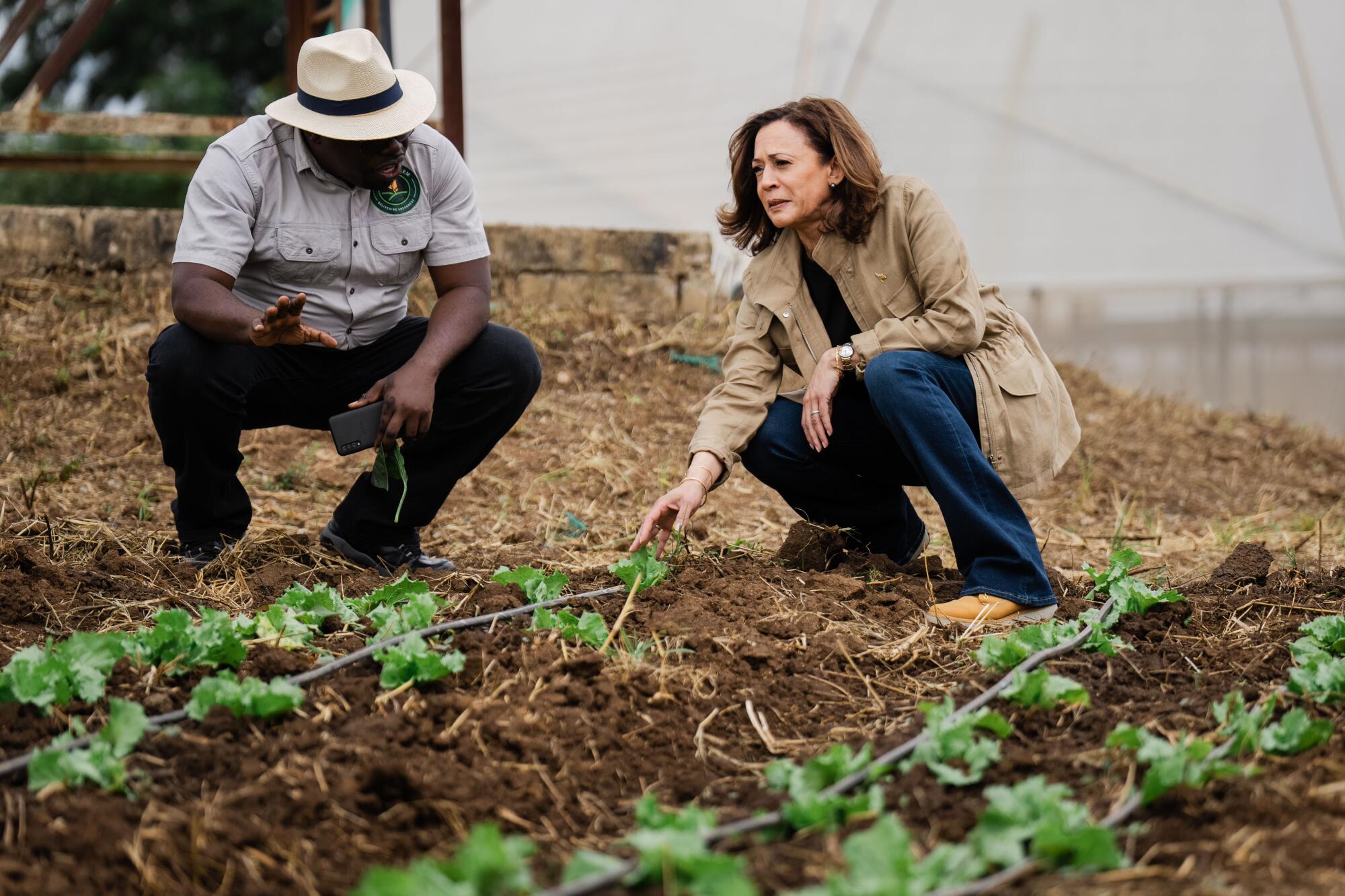
The next day, at Panuka Farm, a green-powered, World Bank-funded enterprise off a dusty, dirt road outside of Lusaka, Harris delighted in learning about innovations these farmers were using to grow sweet corn and broccoli.
Strolling along the muddy pathway between greenhouses, she was at ease. The surroundings felt familiar — not because of some half-century-old visit to Lusaka, but because of her childhood days picking up fallen plums on a Northern California farm owned by Regina Shelton, a neighbor she has affectionately referred to as her second mother.
She introduced herself to the farmers and listened intently as she toured rows of netted greenhouses sheltering ripening red, yellow and green sweet peppers. She quizzed the farmers on their pruning techniques as she bent down to rub her fingers through an iceberg lettuce plant.
Later, she leaned in to declare that she was the first vice president to grow peppers at the official residence at the Naval Observatory. Scotch bonnet, Thai chili, jalapeno and chili peppers regularly sprout up on the residential grounds. Eggplants, too.
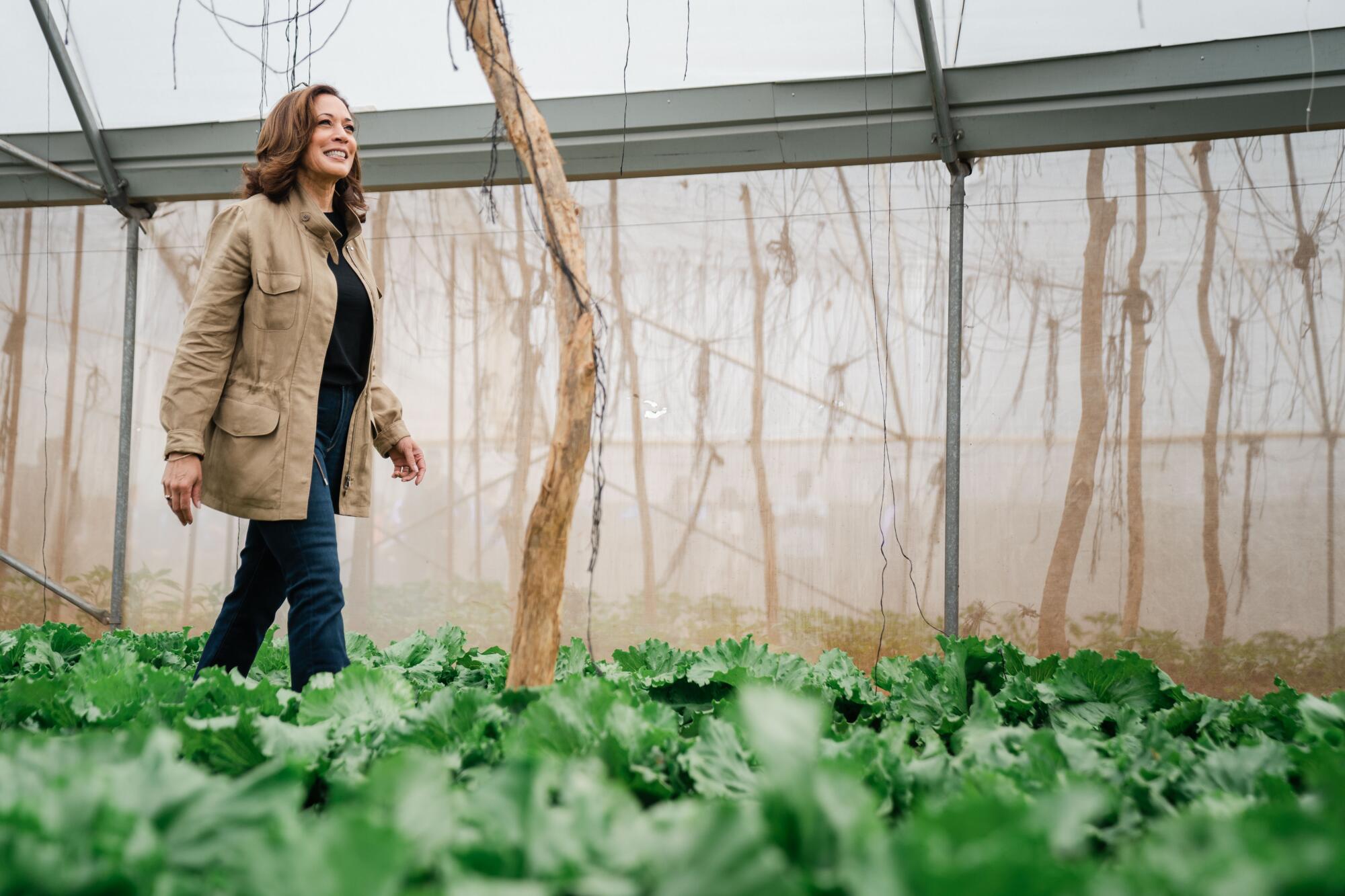
At her home in Brentwood with Emhoff, she said, her garden features rosemary, sage, marjoram and chives, plus bay leaf, lemon and lime trees.
Harris is more willing than ever to explore her past. But she’s still holding on to her mother’s advice, and telling her own story about who she is. There’s a simple explanation for why the vice president is more eager to talk about California than her mother’s India, her father’s Jamaica, or her grandfather’s Zambia: She’s from here.
More to Read
Get the L.A. Times Politics newsletter
Deeply reported insights into legislation, politics and policy from Sacramento, Washington and beyond. In your inbox three times per week.
You may occasionally receive promotional content from the Los Angeles Times.
